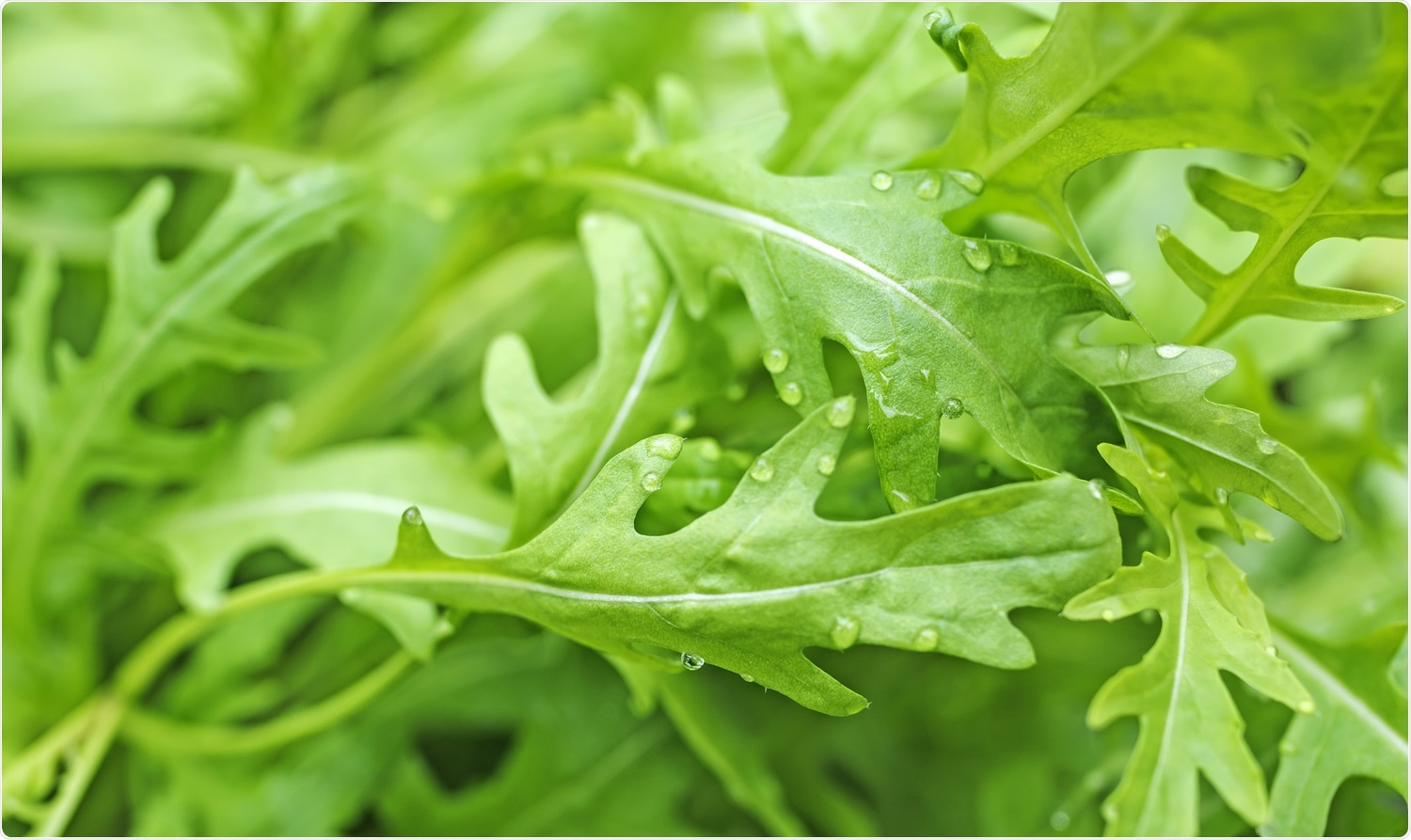Researchers in Spain have identified plant extracts that may be of interest in the search for treatments of coronavirus disease 2019 (COVID-19) and serve as a basis for future chemical, in vivo, and clinical trials.
The team – from the Polytechnic University of Valencia – identified 17 plant products commonly used in current and traditional cuisine that have previously shown promise as inhibitors of a coronavirus protein called chymotrypsin-like protease (3CLPro).
This protein is required for successful replication of severe acute respiratory syndrome coronavirus 2 (SARS-CoV-2) – the agent responsible for the ongoing COVID-19 pandemic.
The analysis revealed that extracts of turmeric, mustard seed, and wall rocket exhibited significant inhibition of SARS-CoV-2 3CLPro activity.
As reported in the journal Foods, turmeric rhizome extracts were the most effective at inhibiting 3CLPro activity.
The study also revealed that a derivative of sinigrin, which is found in mustard seeds, was also a potent inhibitor of SARS-CoV-2 3CLPro activity.
“Testing plant extracts can be considered a first approach in the search for natural compounds with antiviral activity, or even represent a basis for the development of prophylactic or therapeutic plant extracts against COVID-19,” writes Carla Guijarro-Real and colleagues.
“In addition, given the proven safety for human consumption of the plants from which extracts are obtained, their potential use against COVID-19 might be immediate and easily accessible,” they add.
Effective SARS-CoV-2 treatments are urgently needed
Since the SARS-CoV-2 outbreak began in late December 2019, intense research efforts have led to the development and emergency use authorization of several COVID-19 vaccines that are now being rolled out on a mass scale globally.
“Several of the first-generation vaccines already in use in vaccination campaigns have shown high levels of efficacy, albeit the level of protection is not complete and seems to be strain-dependent,” say the researchers.
Furthermore, vaccines are in short supply in some regions, and in many countries, vaccination against SARS-CoV-2 is neither compulsory nor indicated for some specific groups, such as children or people with certain health conditions.
“Obtaining effective treatments against SARS-CoV-2 is urgently needed because, in combination with vaccines, they may become a first-line therapy not only for current SARS-CoV-2 strains but also for new ones,” says the team.
Where does 3CLPro come in?
The SARS-CoV-2 protein 3CLPro is required for the proteolytic processing of viral polyproteins during the maturation step and is therefore essential for successful viral replication.
“The fundamental role of the 3CLPro in viral replication makes this enzyme an attractive target for the development of drugs inhibiting the virus replication,” says Guijarro-Real and colleagues.
Recent studies reviewing natural compounds that may have potential antiviral activity against SARS-CoV-2 have identified plant-based extracts such as glucosinolates, flavonoids, and other phenolic compounds as likely inhibitors of 3CLPro.
What did the researchers do?
Based on these previous studies, the researchers used a targeted approach to identify 17 plant products as potential inhibitors of 3CLPro activity.
“The materials selected constitute common food products in many cultures and are of easy access or, alternatively, grow profusely in many regions and are included in traditional cuisines,” they say.
The plant products included citrus fruit peels, lemon, lime, grapefruit, celery, parsley, dill, sweet chamomile, dried oregano, red onion, turmeric, aloe vera, brown mustard seeds, horseradish, commercial wasabi powder, wall rocket, and wild rucola.

Roquette, Rucola, wild rocket. Image Credit: Kuttelvaserova Stuchelova / SHutterstock
The team evaluated methanolic extracts in vitro for inhibition of SARS-CoV-2 3CLPro activity using a quenched fluorescence resonance energy transfer (FRET) assay.
The inhibition of SARS-CoV-2 3CLPro activity was tested at a final extract concentration of 500 µg mL−1. The lime peel and chamomile extracts produced signal interferences and were therefore excluded from the analysis.
What did the study find?
Seven of the plant products exhibited low inhibitory capacity against 3CLPro, for which the average residual activity was more than 70%. These products included extracts of grapefruit, lemon, orange fruit peel, red onion, celery stalk, horseradish, and dill.
Five other materials exhibited an intermediate inhibitory capacity (35–55%), including extracts of celery leaves, parsley, oregano herbs, aloe vera leaves, and wasabi powder.
Finally, three extracts exhibited high inhibitory capacity, including wall rocket, mustard seeds, and turmeric rhizomes, which resulted in residual 3CLPro activity of 14.9%, 9.4%, and 0.0%, respectively.
“The turmeric extracts were, in fact, the most effective among all the plant-based extracts evaluated in the inhibitory activity,” says Guijarro-Real and colleagues.
However, when the team tested commercial curcumin, (curcumin is the principal curcuminoid in turmeric) SARS-CoV-2 3CLPro activity was no longer fully inhibited, suggesting that other components in the turmeric extract must contribute to the inhibition.
“The inhibitor capacity of turmeric extracts might be the result of a synergistic activity of several compounds,” writes the team. “Overall, our results indicate that extracts of turmeric are a strong candidate for being tested for inhibition of the in vivo replication of SARS-CoV-2.”
Sinigrin derivative also potently inhibited 3CLPro activity
The study also revealed that a derivative of sinigrin – allyl isothiocyanate – potently inhibited 3CLPro activity. Sinigrin is a major glucosinolate present in mustard seed and wall rocket.
The team says the results suggest that this sinigrin derivative is also a good candidate molecule for in vivo testing against 3CLPro activity.
“However, the high cytotoxicity of allyl isothiocyanate may preclude its practical use, which would depend on the concentration required,” says Guijarro-Real and colleagues.
“Further analysis of the methanolic extracts for mustard and wall rocket would increase the knowledge regarding the concentration at which these compounds are found, and the possible presence of other metabolites also exerting potential inhibitory activities,” they conclude.